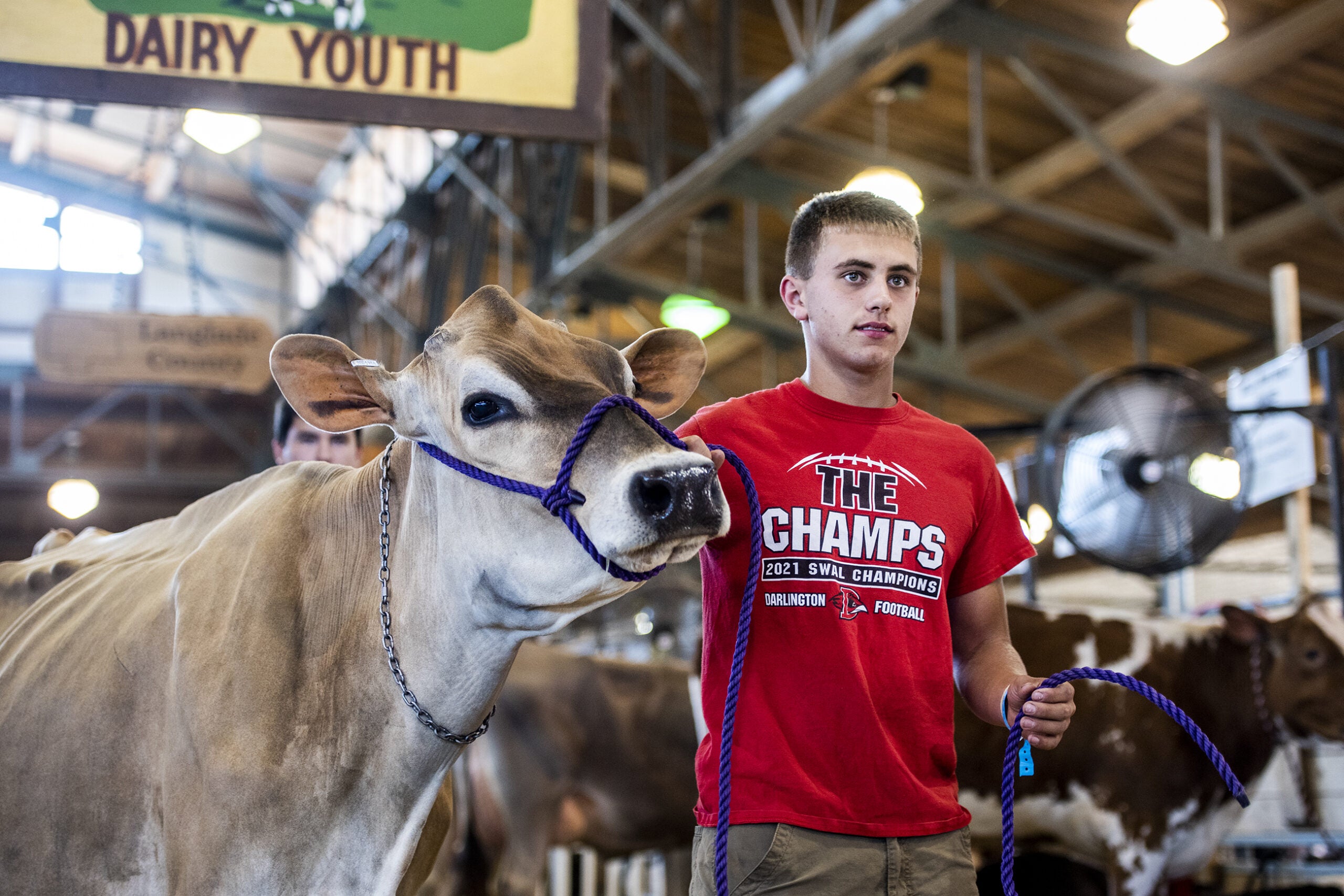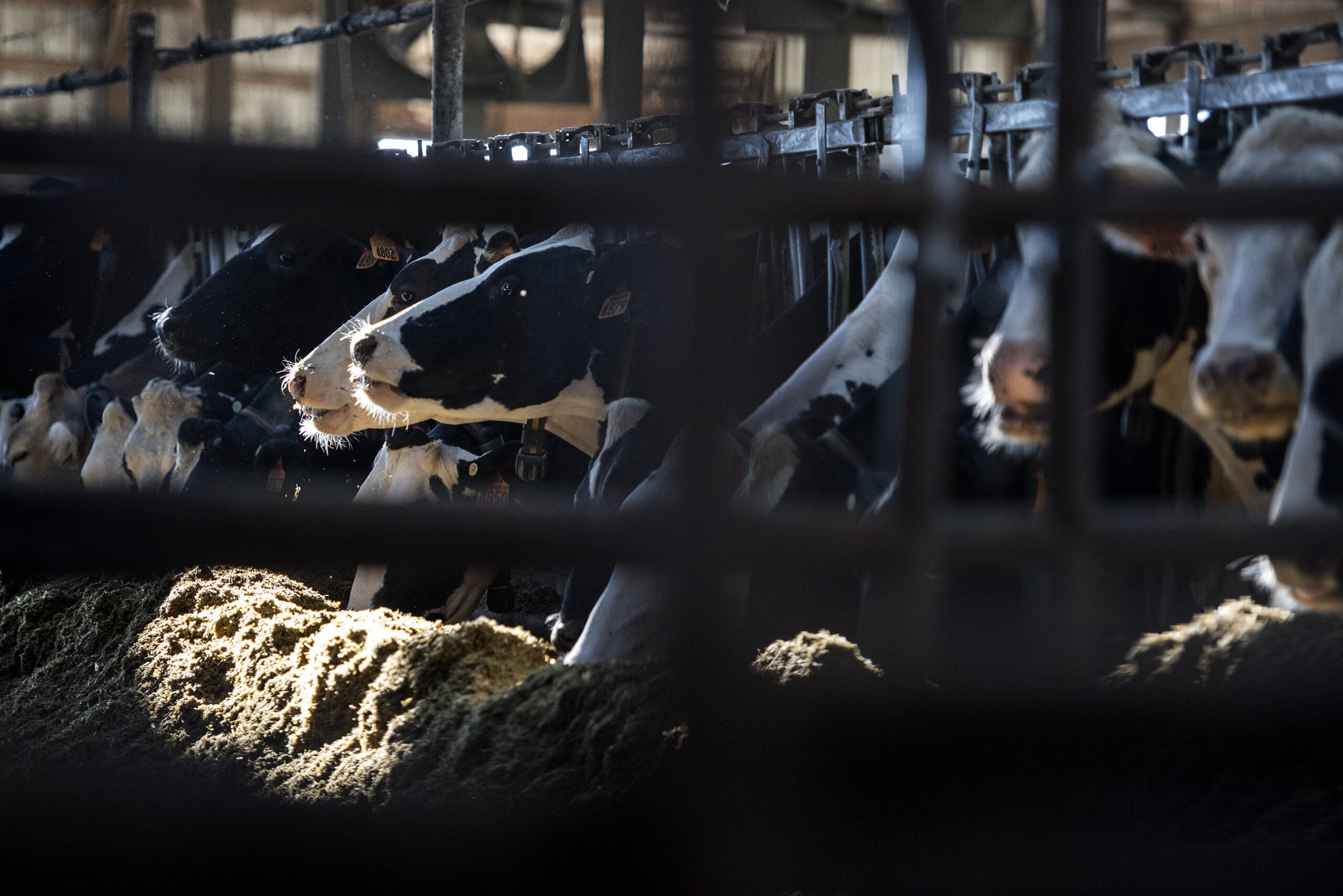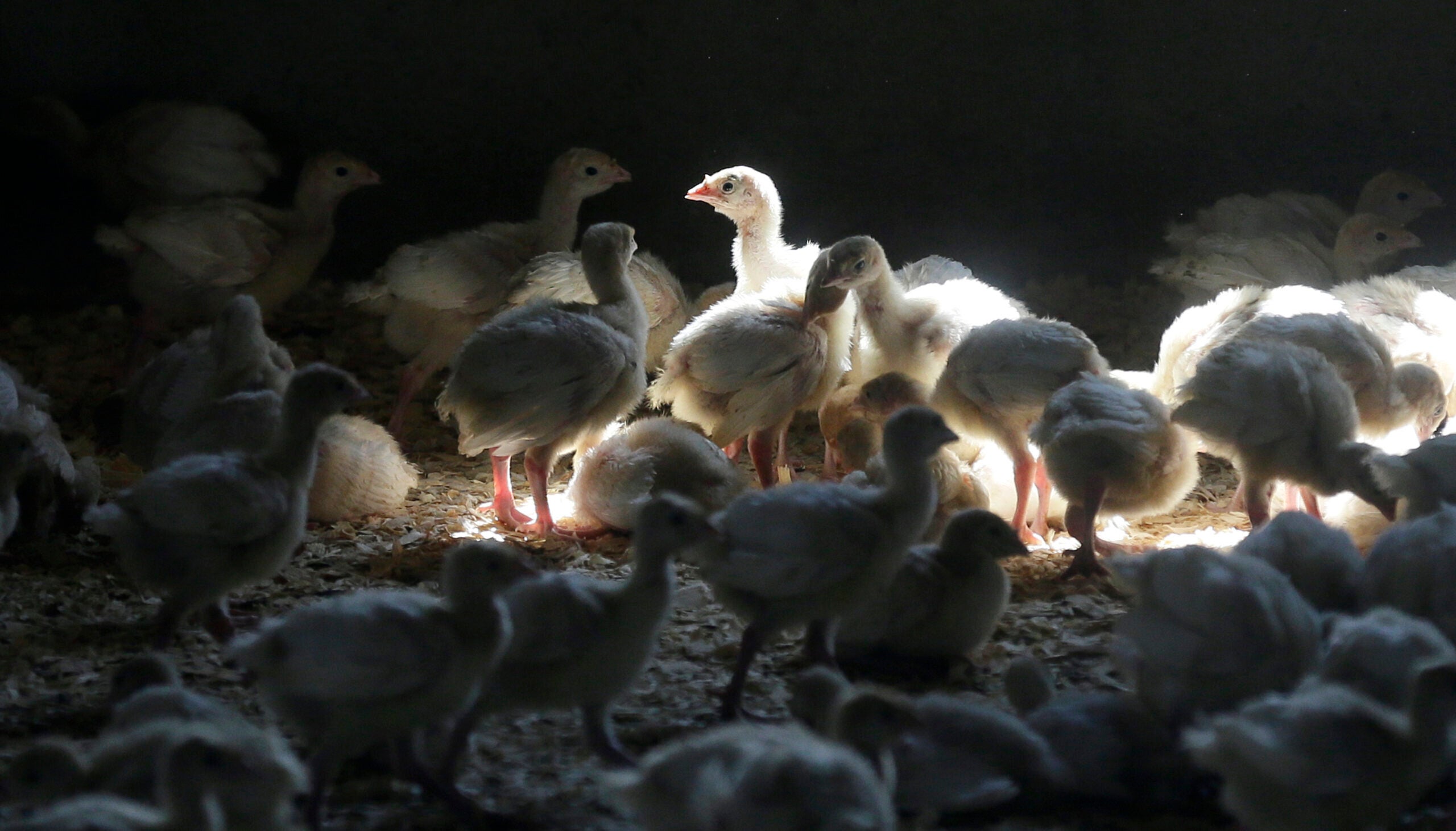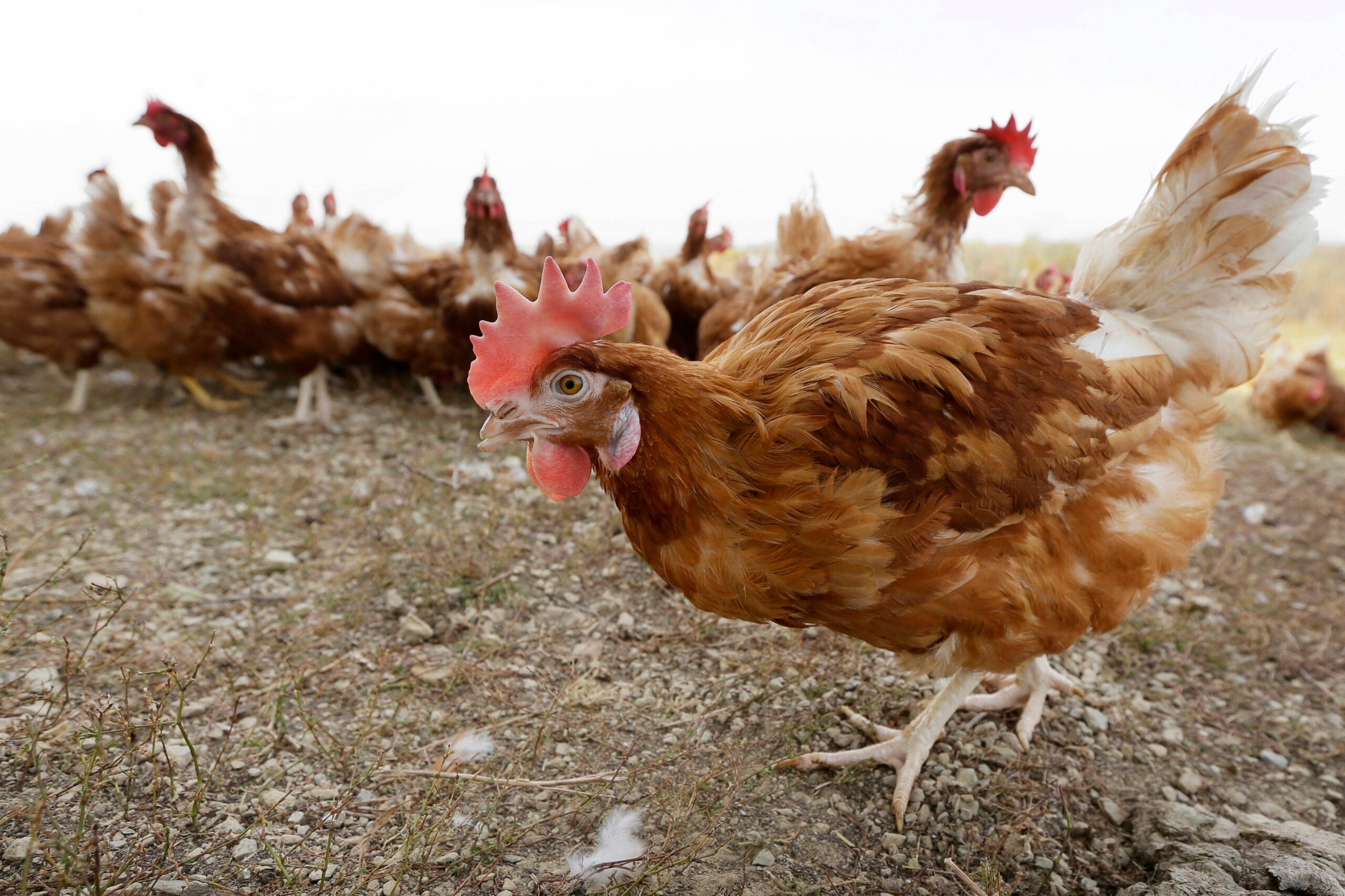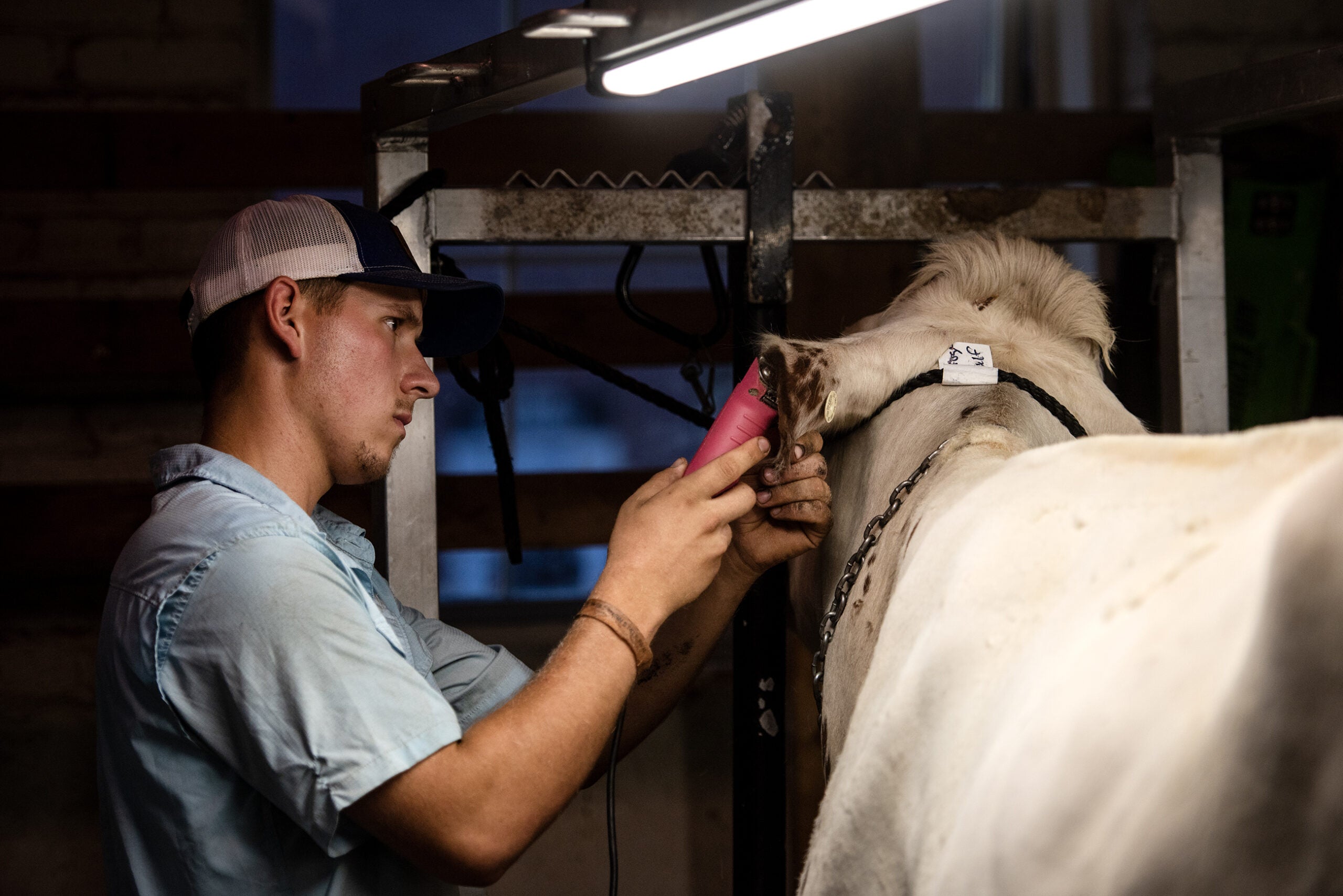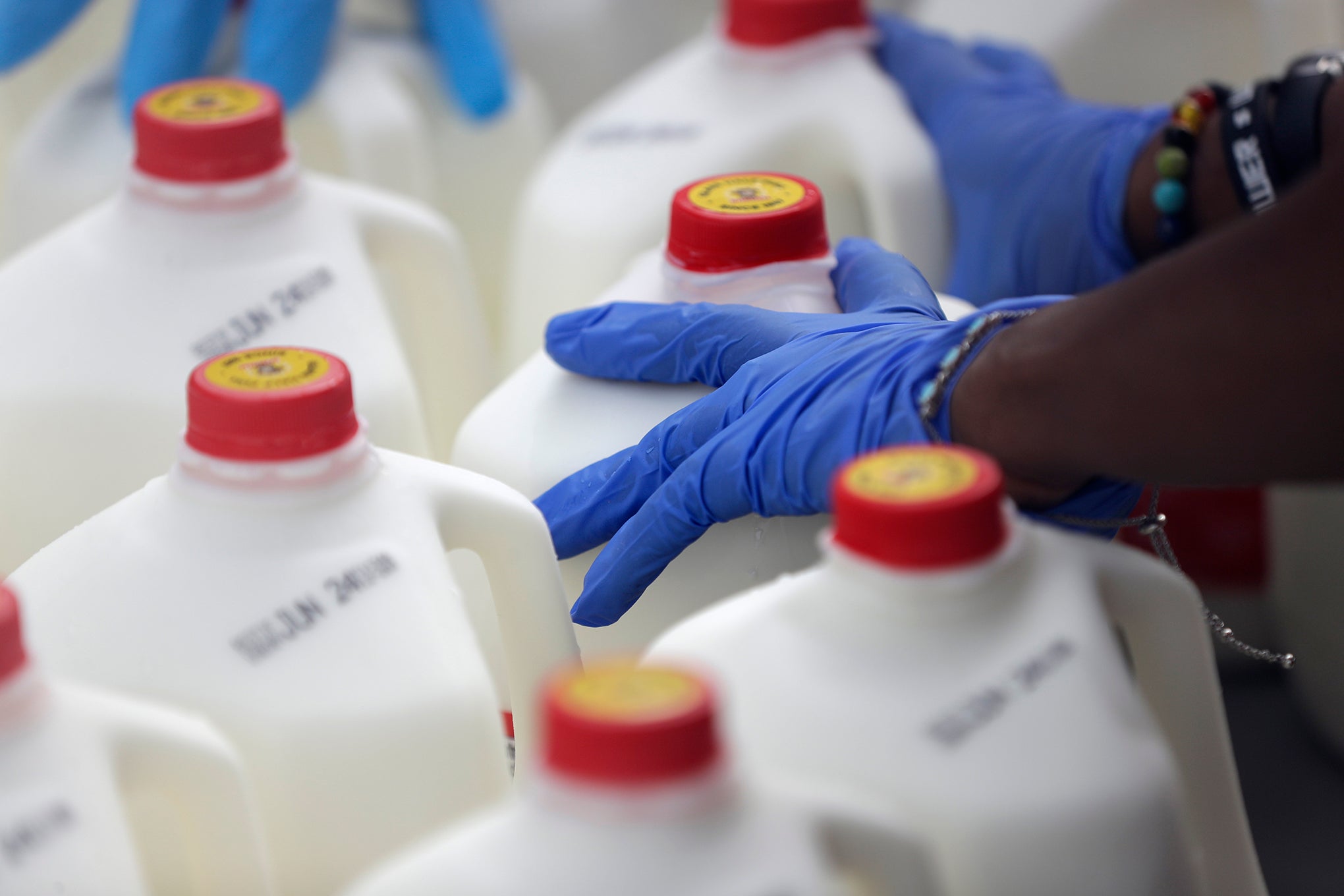Wisconsin dairy cows heading to county fairs and other exhibitions will be required to undergo testing for avian flu this summer.
Fairs, rodeos and similar exhibitions will be required to verify that lactating cows have tested negative for the H5N1 virus within 7 days of moving to the event.
The state Department of Agriculture, Trade and Consumer Protection announced the new testing requirement Tuesday. It goes into effect on June 19, when the first county fair of the summer begins.
News with a little more humanity
WPR’s “Wisconsin Today” newsletter keeps you connected to the state you love without feeling overwhelmed. No paywall. No agenda. No corporate filter.
Highly-pathogenic avian influenza has affected 90 dairy herds across 12 states since it was first identified in Texas and Kansas this March. Minnesota and Iowa are some of the latest states to find the virus in cows, with both states announcing their first cases last week.
“Although we do not have a confirmed case in dairy cattle in Wisconsin at this point, we did feel that with the increasing number of cases, especially in our region, that it made sense to minimize opportunities for this virus to be introduced or spread among animals in Wisconsin,” said State Veterinarian Dr. Darlene Konkle during a call with reporters.
Konkle said fairs will check for the test as part of the health information they normally verify for participating livestock. DATCP’s animal health inspectors will also be working with fairs to carry out the new requirement.
New requirements will increase surveillance for H5N1 virus
Wisconsin is not the first state to make changes to the fair season in response to avian flu. In May, Michigan agriculture officials issued an order prohibiting dairy cattle from being shown at exhibitions until there are no new cases of the virus in cows for 60 days. The last case reported in that state was on May 31.
The new testing requirement does not apply to cows moving between dairy herds in the state. Since April, the U.S. Department of Agriculture has required that lactating cows moving between states undergo testing for avian flu.
Konkle said the Wisconsin Veterinary Diagnostics Laboratory, which is the only facility certified to process the avian flu samples, is prepared to take on the additional tests coming from the order. She said most cattle owners should receive their test results the day of or after their samples are processed by the lab.
She said laboratory costs to process the tests will be covered by funding from the U.S. Department of Agriculture and producers can apply for additional assistance to cover shipping and veterinary costs.
Health experts have expressed concerns about the limited amount of testing happening on farms and among their workers nationwide. Konkle said while the new order is meant to protect farms bringing cows to and from fairs this summer, it will help provide additional surveillance in the state.
“We’re trying to learn all we can (from) our neighbor states that have affected farms and the additional epidemiological information they’re gathering and the testing information from those affected herds,” she said.
Federal officials urge restrictions on raw milk sales
Last week, the Food and Drug Administration sent a letter to states recommending the sale of raw milk be monitored or restricted in order to prevent the virus from being passed on to consumers. High levels of the H5N1 virus have been found in raw milk from infected cows, and there is evidence that exposure to raw milk can spread the infection between cows.
An FDA official said in the letter that it is not yet known if the virus can be transmitted to humans through consumption of raw milk. But the official pointed out that exposures on affected dairy farms have been associated with the three cases of the illness in farm workers, and cited concerns about creating opportunities to “adapt to new hosts.”
The sale of raw milk is illegal in Wisconsin, except through what’s called incidental sales. DATCP defines this as a direct sale to a consumer on the farm that is not a regular business transaction or if there is any advertising.
Adam Brock, administrator for DATCP’s Division of Food and Recreational Safety, told reporters on Tuesday that the state is not currently moving toward additional restrictions on raw milk sales.
“We still have our standard practices of emphasizing and educating on pasteurization,” Brock said. “I think we were probably one of the first to say pasteurization works. We continue to work with FDA and USDA.”
Recent studies of milk from infected cows have provided evidence that pasteurization of milk inactivates the virus, supporting assurances from federal and state health officials that the commercial milk supply is safe.
Brock said DATCP is also working with producers to mitigate the risk of virus spread in other ways, including increased education around on-farm sanitation and safety measures.
Wisconsin Public Radio, © Copyright 2025, Board of Regents of the University of Wisconsin System and Wisconsin Educational Communications Board.

